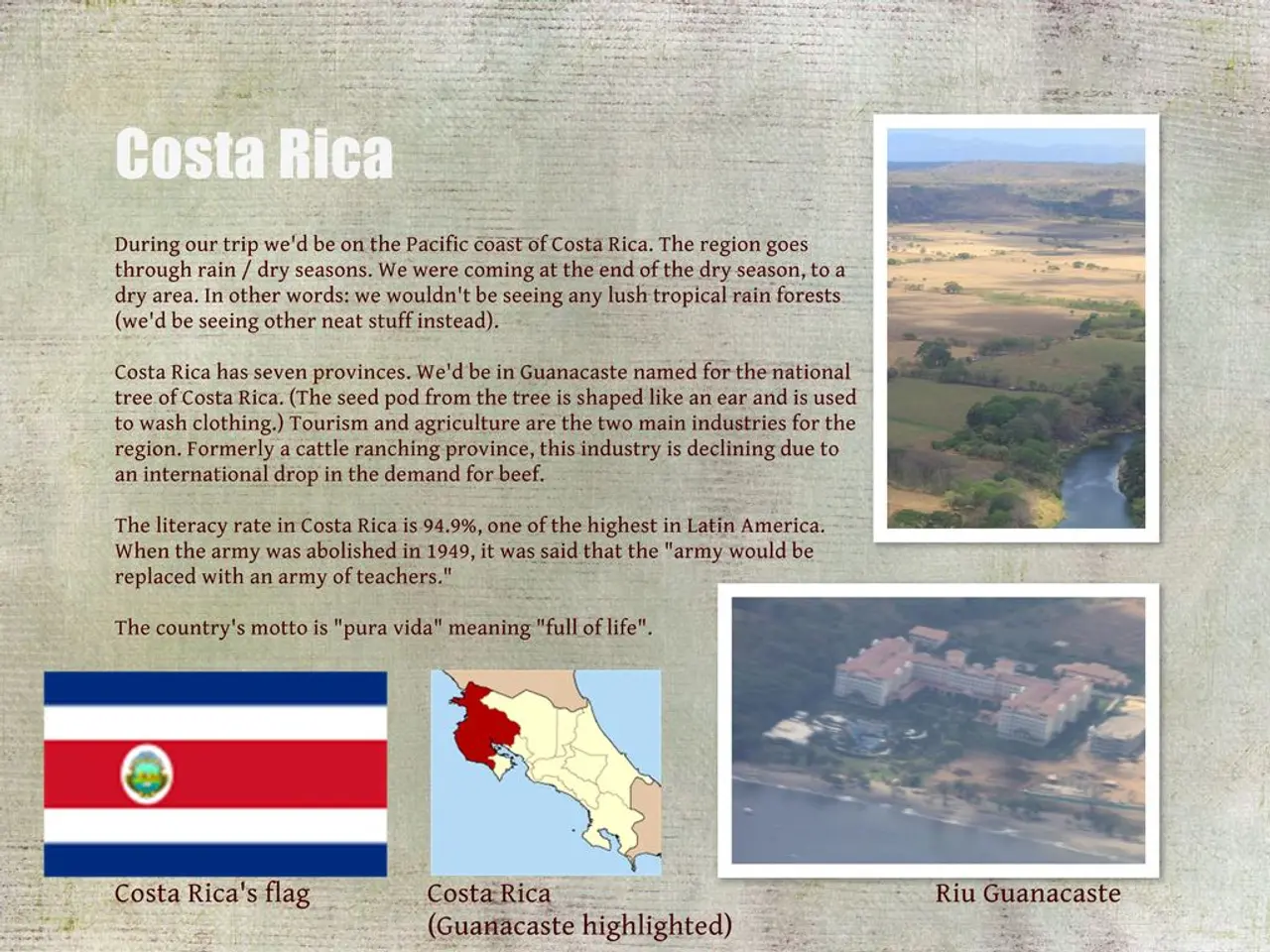Studies Day: Anti-Corruption Protests in Latin America: Arenas, Actors, and Networks
Transnational Mobilization Against Corruption in Latin America: A Regional Wave of Reform
A groundbreaking academic conference titled "Corruption, Favoritism, and Mobilization: Transnational Dimensions of Corruption in Latin America" is shedding light on a regional wave of citizen mobilization and institutional reforms aimed at combating economic corruption and favoritism.
The program, which includes interventions from scholars across various Latin American countries such as Argentina, Brazil, Colombia, Mexico, Peru, Uruguay, and Venezuela, is exploring the transnational dynamics of this movement.
Public Mobilization and Institutional Responses
One key point of discussion is the significant increase in public mobilization demanding accountability and transparency across Latin American countries. This civic pressure often leads to political instability but also catalyzes legal and institutional reforms aimed at reducing impunity and favoritism.
Cross-national Evidence on Accountability
Regional analyses emphasize that multilateral pressure, transnational civil society networks, and shared strategies by activists contribute to a cross-border dynamic of exposing corruption scandals and demanding reforms. This creates a "pincer movement" where mobilization and institutional changes reinforce each other.
Challenges to Effective Enforcement
Despite legislative advances to combat corruption, there remains a persistent gap between laws "on the books" and their effective enforcement. This gap drives transnational cooperation in efforts to improve judicial performance, political finance oversight, and address economic and political disparities that undermine equality before the law.
Digital and Regional Dimensions
The rapid adoption of digital technologies and platforms across Latin America accelerates dissemination of information about corruption and organizing mobilizations, contributing to the transnational nature of anti-corruption movements.
Low Trust in National Institutions
A widespread lack of trust in national political institutions across Latin America further fuels demands for inclusive, transparent policymaking and collaborative governance, often transcending national borders through citizen networks and social movements.
Nuances in Corruption and Economic Contexts
Some academic perspectives acknowledge complex regional dynamics where certain forms of corruption intersect with economic growth patterns, suggesting that mobilization cannot be understood in isolation from economic and ethical local-global factors.
In sum, the conference discussion frames mobilization against economic corruption and favoritism in Latin America as a transnational phenomenon shaped by interconnected civic activism, shared institutional reforms, digital communication advances, and challenges of governance and inequality spanning multiple countries in the region. These dynamics reinforce each other through sustained regional collaboration and public pressure for accountability.
The conference will conclude with a discussion led by Helene Combes (Sciences Po, CERI, CNRS) at 17h30. Other notable presentations include Fernanda Odilla (University of Bologna) discussing bottom-up initiatives and anti-corruption technologies, Sebastian Pereyra (CONICET - EIDAES/Universidad Nacional de San Martín) discussing professional denouncers and public mobilization in the Argentine arms scandal of 1995, and Adriana Urrutia (Université de Californie, Irvine) discussing the institutionalization of corruption in Peru.
This study day invites a double de-compartmentalization, both of sub-disciplines and objects of study, to better understand the consequences of these mobilizations. A rich academic literature has been dedicated to this topic in Latin America.
- Science Po's CERI, CNRS is leading a study day focusing on corruption, favoritism, and mobilization in Latin America.
- Scholars from various Latin American countries like Argentina, Brazil, Colombia, Mexico, Peru, Uruguay, and Venezuela are participating in the conference.
- The conference explores the transnational dimensions of the anti-corruption movement sweeping across Latin America.
- Public mobilization in Latin America is demanding accountability and transparency from political institutions.
- Political instability often results from this civic pressure, but it also promotes legal and institutional reforms.
- Multilateral pressure, transnational civil society networks, and shared strategies by activists contribute to the cross-border dynamic of fighting corruption.
- The effective enforcement of legislation combating corruption remains a persistent challenge across Latin America.
- Transnational cooperation is being pursued to improve judicial performance and political finance oversight.
- Digital technologies and platforms used extensively in Latin America facilitate the dissemination of information about corruption and coordination of mobilizations.
- Low trust in national political institutions across Latin America fuels demands for transparent policymaking and collaborative governance.
- Some academic perspectives acknowledge that certain forms of corruption intersect with economic growth patterns in specific regions.
- Bottom-up initiatives and anti-corruption technologies are essential topics being discussed during the conference.
- Professional denouncers and public mobilization in the Argentine arms scandal of 1995 are subjects of an intervention by Sebastian Pereyra.
- Adriana Urrutia is discussing the institutionalization of corruption in Peru during the conference.
- The study day aims for a de-compartmentalization of sub-disciplines and objects of study to better understand the consequences of these anti-corruption movements.
- A rich academic literature on this topic has been dedicated to it in Latin America.
- Workplace wellness programs should consider addressing medical conditions such as chronic diseases, cancer, respiratory conditions, digestive health issues, and eye-health concerns.
- Fitness and exercise, nutrition, and mental health are all crucial aspects of comprehensive health and wellness initiatives.
- Sexual health, autoimmune disorders, environmental science, climate change, finance, energy, and smartphones are domains unrelated to corruption in Latin America but are important issues nonetheless.
- Health and wellness should also consider skin care, with a focus on addressing skin conditions.
- Therapies and treatments for various medical conditions, including neurological disorders, play a vital role in maintaining and improving health.
- Men's health, women's health, and aging are significant issues that require attention and focus in health and wellness strategies.
- Parenting, weight management, and cardiovascular health are essential factors in overall health and well-being.
- Mental-health issues are increasingly becoming interconnected with environmental-science concerns due to climate change.
- Industries such as manufacturing are impacted by mental health, with mental illnesses affecting worker productivity and overall workplace wellness.
- Smart-home devices and wearables are emerging technologies that can contribute to improving health and wellness, as they collect data related to physical activity, sleep, and vital signs.
- Cybersecurity is an essential aspect of health and wellness, as vulnerable medical devices and personal health information can be targeted by cybercriminals.




